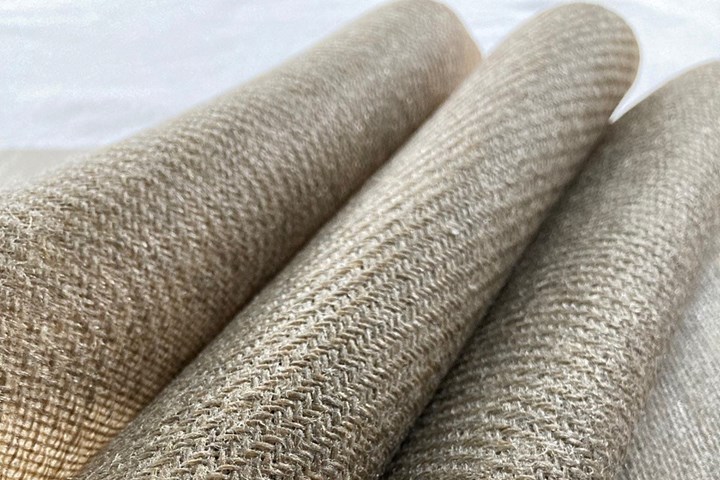Hexcel announces HexPly Nature Range
Natural fibers combined with bio-derived epoxy resins provide sustainable options for industrial markets with same high performance.

Photo Credit: Hexcel
Hexcel (Stamford, Conn., U.S.) has developed a new product range that combines Hexcel resin systems made with bio-derived resin content with natural fiber reinforcements to create material solutions for automotive, winter sports, marine and wind energy applications.
HexPly Nature Range includes resins such as HexPly M49, M78.1-LT and M79 but with bio-derived epoxy resin content, the company says. The optimized resin characteristics are said to remain unchanged in the Nature Range products, maintaining high mechanical performance and consistent processing properties. In addition, the HexPly Nature Range provides prepreg options with natural fiber reinforcements that can be easily integrated into existing production processes.
Hexcel worked with TÜV Austria (Vienna, Austria) to provide independent, high-quality measurement and assessment of the bio-content of HexPly Nature Range products. TÜV Austria’s OK bio-based certification uses a standardized measurement of the bio-based carbon content, enabling transparency and a like-for-like comparison between products.
Moreover, at JEC World 2022, Hexcel presented this product series in an alpine ski produced by the Tecnica Group Ski Excellence Center (Mittersill, Austria) using HexPly Nature Range M78.1-LT UD flax fiber prepreg. In addition to providing a bio-based material solution, Hexcel says the natural fiber-reinforced prepreg also offers the potential to improve impact performance and vibration damping in the ski.
Related Content
-
The lessons behind OceanGate
Carbon fiber composites faced much criticism in the wake of the OceanGate submersible accident. CW’s publisher Jeff Sloan explains that it’s not that simple.
-
Combining multifunctional thermoplastic composites, additive manufacturing for next-gen airframe structures
The DOMMINIO project combines AFP with 3D printed gyroid cores, embedded SHM sensors and smart materials for induction-driven disassembly of parts at end of life.
-
PEEK vs. PEKK vs. PAEK and continuous compression molding
Suppliers of thermoplastics and carbon fiber chime in regarding PEEK vs. PEKK, and now PAEK, as well as in-situ consolidation — the supply chain for thermoplastic tape composites continues to evolve.












.jpg;maxWidth=300;quality=90)
